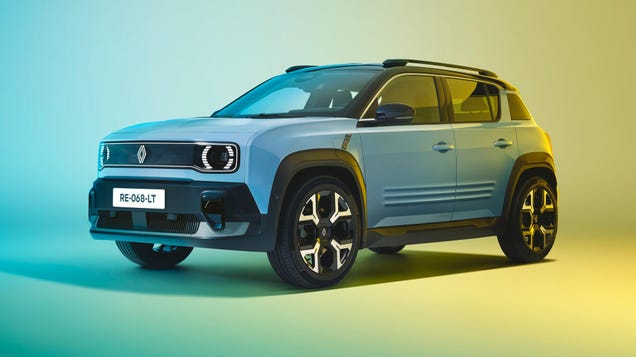The Rise of Retro Electric Vehicles: A Look at the Renault 5 and Renault 4 E-Tech
The automotive landscape is undergoing a significant transformation, with electric vehicles (EVs) taking center stage. Among the most exciting developments in this realm are the retro-inspired designs that evoke nostalgia while embracing modern technology. The Renault 5 and the newly unveiled Renault 4 E-Tech exemplify this trend, capturing the hearts of car enthusiasts and eco-conscious consumers alike. This article delves into the significance of these models, their design philosophies, and what they mean for the future of electric vehicles.
Reviving Iconic Designs: The Allure of Retro Aesthetics
The Renault 5, which debuted as a fully electric hatchback, has been hailed as one of the most significant automotive introductions of 2024. Its design pays homage to the original Renault 5, a beloved model that left an indelible mark on the automotive industry in the 1970s and 1980s. The retro styling not only appeals to those with fond memories of the classic car but also attracts a new generation of drivers who appreciate the blend of vintage charm and modern functionality.
The recent reveal of the Renault 4 E-Tech at the Paris Auto Show further emphasizes this trend. Like the Renault 5, the Renault 4 E-Tech draws inspiration from its predecessor while incorporating cutting-edge electric technology. This revival of classic designs is not merely a marketing gimmick; it reflects a broader consumer desire for authenticity and connection to the past in an increasingly digital world.
Consumer Preferences: Why Retro EVs Are Gaining Popularity
The growing popularity of retro electric vehicles can be attributed to several factors. First, there is a significant shift in consumer preferences towards sustainability. As environmental concerns become more pressing, many buyers are seeking vehicles that not only reduce their carbon footprint but also resonate with their personal values. Retro EVs like the Renault 5 and Renault 4 E-Tech offer a unique solution, combining eco-friendliness with a nostalgic aesthetic.
Moreover, the emotional connection that consumers have with classic cars cannot be underestimated. Research indicates that nostalgia can play a powerful role in consumer decision-making, influencing preferences and purchasing behavior. By tapping into this emotional resonance, manufacturers can create a compelling narrative around their products, fostering brand loyalty and attracting a diverse customer base.
Technological Advancements: Merging Past and Present
While the retro designs of the Renault 5 and Renault 4 E-Tech are visually striking, it is the underlying technology that truly sets these vehicles apart. Both models are equipped with advanced electric drivetrains that promise impressive performance and efficiency. For instance, the Renault 5 boasts a range that caters to urban commuting needs, while the Renault 4 E-Tech is designed to offer versatility for various driving conditions.
Furthermore, these vehicles incorporate modern features such as advanced infotainment systems, connectivity options, and safety technologies that enhance the driving experience. This seamless integration of classic design with contemporary technology positions these models as not just nostalgic relics but as practical choices for today’s drivers.
Market Implications: The Future of Retro Electric Vehicles
The success of the Renault 5 and Renault 4 E-Tech signals a potential shift in the automotive market. As more manufacturers explore retro designs for their electric vehicles, we may see a broader trend toward nostalgia-driven models. This could lead to increased competition in the EV sector, pushing brands to innovate while maintaining a connection to their heritage.
Additionally, the rise of retro EVs could influence consumer expectations regarding vehicle design and functionality. As buyers become accustomed to the idea of electric cars that reflect their personal style and values, manufacturers will need to adapt their offerings to meet these evolving demands.
In conclusion, the Renault 5 and Renault 4 E-Tech represent more than just new models in the electric vehicle market; they embody a cultural shift towards sustainability, nostalgia, and innovation. As the automotive industry continues to evolve, these retro-inspired vehicles may pave the way for a future where classic designs and modern technology coexist harmoniously, appealing to both seasoned enthusiasts and new drivers alike.

